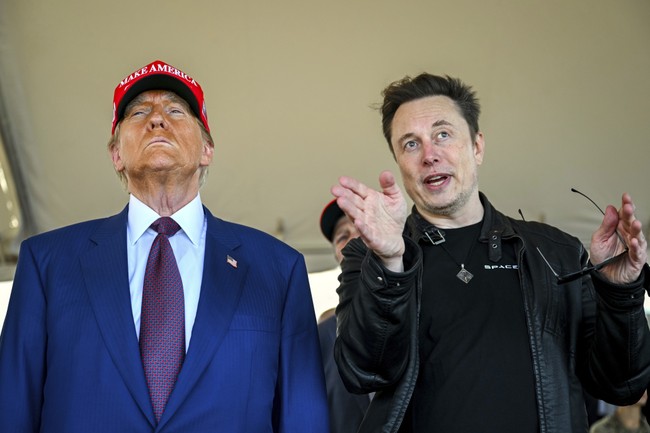Marco Rubio's Strategic Rise in Trump's Cabinet
Marco Rubio assumes the pivotal role of Secretary of State under Trump's administration, focusing on redefining U.S. foreign policy and addressing contentious global issues amidst bipartisan support.
Published January 23, 2025 - 00:01am

Image recovered from washingtonexaminer.com
On the heels of his second inauguration, President Donald Trump swiftly moved to assemble his Cabinet, with Marco Rubio, the former Senator from Florida and a key figure in American politics, assuming the position of Secretary of State. His confirmation marks a significant shift in U.S. foreign policy rhetoric and execution, aligning closely with Trump's agenda focused on strengthening national interests and reshaping America's global alliances.
Rubio's confirmation as Secretary of State was met with overwhelming bipartisan support, emphasizing his qualifications and experience garnered from serving as a senator since 2011. His journey from a critic of Trump's policies to a staunch ally underscores a dynamic political evolution, gaining favor among both Republican and Democratic senators. The Senate's near-unanimous vote highlights an unusual moment of agreement in a polarized political climate, showcasing Rubio's unique ability to bridge divides.
Within hours of his confirmation, Rubio outlined his strategic foreign policy goals, prioritizing border security and a pragmatic approach to international diplomacy. As the son of Cuban immigrants, Rubio's perspectives on U.S.-Latin American relations are of particular interest, especially concerning migration issues. His stance aligns with Trump's controversial immigration policies, emphasizing border security and the need to manage the flow of migrants more stringently.
In addition to migration, Rubio aims to redirect the Department of State's focus towards enhancing America's energy dominance and reassessing relationships with key economic partners. His approach signals a departure from the previous administration's focus on climate change, steering instead towards policies that ensure the United States maintains a competitive edge in global energy markets.
Furthermore, Rubio's appointment shapes strategic dialogues in the Indo-Pacific through collaborations within the Quad—a security dialogue with India, Australia, and Japan—aiming to address the rising influence of China. His prior advocacy against China's political maneuvers underscores a commitment to counterbalance Beijing's growing assertiveness on the global stage.
In the context of North Korea, Rubio intends to recalibrate U.S. policy to mitigate the risk of unintended conflict on the Korean Peninsula. His focus on diplomatic efforts reflects a balanced approach to managing one of the most complex geopolitical challenges, combining strategic deterrence with efforts to engage regional partners in ensuring stability and denuclearization.
Rubio's transition into his role as America's chief diplomat reflects a broader realignment of U.S. foreign policy under the Trump administration, steering it towards an America First doctrine. His leadership is expected to reinforce Trump's core foreign policy promises to advance the country's interests, emphasizing strength, security, and prosperity as guiding principles in international affairs.
As Rubio embarks on his tenure, the expectations are high for redefining America's diplomatic priorities and enhancing its global standing amidst evolving geopolitical dynamics. His approach will be watched closely as it not only shapes U.S. policy but also impacts international perceptions and alliances in the coming years.






